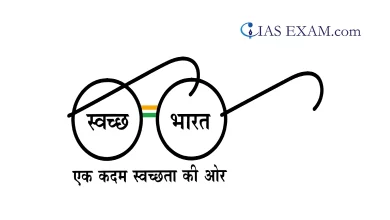Issues and Challenges associated with enacting WUEGA
GS Paper 2 - Govt. Policies & Implementation, Welfare Schemes

Context
The unemployment rates in urban areas at present in India are at all time high including a high unmet demand for employment among urban women. Thus, there is a proposal for enacting a national Women’s Urban Employment Guarantee Act (WUEGA) to address the issues of unemployment among urban women in the country.
What is WUEGA?
- The Women’s Urban Employment Guarantee Act (WUEGA) is a proposed legislation aimed at solving the problem of urban unemployment among the women in India. It purposely guarantees employment opportunities specifically for urban women.
- The legislation, if enacted, will look to bridge the gap in employment opportunities between men and women in cities. WUEGA will seek to empower women and encourage their participation in the urban workforce.
Possible Features of the Act
- Guaranteed Employment: WUEGA proposes guaranteeing women a minimum number of workdays (e.g.150 days) per year.
- Local Work: Creating work opportunities within a reasonable distance (e.g., 5 km) from a woman’s residence.
- Accessible Infrastructure: WUEGA might include provisions for essential facilities like childcare centres at worksites to address challenges faced by working mothers.
- Skill Development: The proposal might incorporate training programs to bridge any skill gaps between available jobs and the qualifications of women in the applicant pool.
- Women-Led Management: It proposes that women should form a significant percentage of the WUEGA management staff; at least 50% (ideally 100%) of the program management staff under WUEGA.
- Supportive Measures: Incentives such as automatic inclusion in welfare boards can be created; these could act as agencies to provide maternity entitlements, pensions, and serve as resources for emergency funds.
Need for WUEGA
- WUEGA will give urban women opportunities for employment that are guaranteed, so empowering them. It allows women to participate in their homes and communities by guaranteeing a minimum amount of workdays.
- It emphasizes the need for childcare facilities at worksites. These provisions enable women to participate in employment without compromising their caregiving responsibilities.
- Leveraging lessons from successful rural employment initiatives such as the MGNREGA, the WUEGA can recreate similar approaches customized for urban regions.
- By increasing the labor force and boosting productivity, higher employment rates for women can act as a stimulant for economic growth.
Challenges and Issues
- Urban Informal Sector Dominance – The urban employment landscape in India is largely dominated by the informal sector, where women constitute a significant workforce. Implementing the WUEGA would require formalizing many informal jobs, which presents logistical and administrative hurdles.
- Gender Discrimination and Societal Norms – Deep-rooted gender biases and societal norms often restrict women’s access to employment opportunities in urban areas. Overcoming these cultural barriers to ensure equal participation of women in the workforce under WUEGA requires comprehensive societal awareness campaigns and policy interventions.
- Lack of Infrastructure and Resources – Many urban areas in India lack adequate infrastructure and resources to support large-scale employment programs like WUEGA. Without proper investment in infrastructure development, the effective implementation of the act may remain a distant dream.
- Administrative and Financial Constraints – Implementing WUEGA requires substantial financial resources and administrative capacity. Local governments may struggle to allocate funds and build capacity for effective implementation, especially in resource-constrained settings.
- Monitoring and Accountability Mechanisms – Ensuring transparency, accountability, and proper monitoring of WUEGA implementation pose significant challenges. Without robust monitoring mechanisms in place, there is a risk of corruption, mismanagement, and exclusion of eligible beneficiaries.
Way Forward for Enactment of WUEGA
- Collecting Gender-Disaggregated Data – Gender-disaggregated data provides policymakers with valuable insights into the specific challenges faced by urban women in accessing and retaining employment.
- Allocate Resource and Build Capacity – Allocate adequate financial resources for the implementation of WUEGA, ensuring sufficient funding for wages, administrative expenses, infrastructure development, and capacity-building initiatives.
- Phased Approach to Implementation – Initiate pilot programs in select urban areas to test the feasibility of implementing WUEGA. Conduct feasibility studies to assess the readiness of different urban areas and identify potential challenges and opportunities.
- Support Women Entrepreneurs – Provide support and incentives for women entrepreneurs to start and grow their businesses, including access to financial resources, mentorship programs, and networking opportunities, to create alternative avenues for employment and economic empowerment.
Conclusion
The enactment of the Women’s Urban Employment Guarantee Act (WUEGA) holds immense potential for promoting gender equality and empowering women in India’s urban areas. It is in line with these constitutional mandates and ethical obligations to promote gender equality and empowerment.However, overcoming the myriad challenges associated with its implementation requires concerted efforts, political will, and multi-stakeholder collaboration.
SOURCE: The Hindu





.png)



